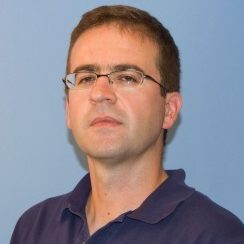Bayesian Modeling of Brain Imaging Data
Statistical methods play a crucial role in understanding and analyzing brain-imaging data. Bayesian approaches, in
particular, have shown great promise in applications, as they allow a flexible modeling of the spatial and temporal
correlations in the data. In this short course, we will focus especially on the analysis of functional MRI data,
although we will provide some review of Bayesian methods for some other common data types (e.g., EEG, PET/MRI, DTI). We
will divide methods according to the objective of the analysis. In particular, we will discuss spatio-temporal models
for fMRI data that detect task-related activation patterns. We will also address the very important problem of
estimating brain connectivity and touch upon methods that focus on making predictions of an individual's brain activity
or a clinical or behavioral response. We also briefly discuss the emerging field of imaging genetics.
Applied Bayesian Nonparametric Mixture Modeling
Bayesian methods are central to the application of modern statistical modeling in a
wide variety of fields. Bayesian nonparametric and semiparametric methods expand considerably the flexibility of Bayesian models. This course will provide an introduction to Bayesian nonparametric methods, with emphasis on modeling approaches built from nonparametric mixtures and with a focus on applications. The course will start by motivating Bayesian nonparametric modeling and providing an overview of nonparametric prior models for spaces of random functions. The main focus will be on models based on the Dirichlet process, a nonparametric prior for random distributions. Particular emphasis will be placed on Dirichlet process mixtures, which provide a flexible framework for nonparametric modeling. We will discuss methodological details for Dirichlet process mixture models, computational techniques for posterior inference, practically relevant extensions to modeling for collections of dependent distributions, and applications. Examples will be drawn from fields such as density estimation, nonparametric regression, hierarchical generalized linear models, survival analysis, and inference for point processes.
The course targets graduate students and researchers interested in an introduction to the area of Bayesian nonparametrics. Required background includes training (at least) to the MS level, including substantial exposure to parametric Bayesian hierarchical modeling and computing.
Course instructor short bio
Athanasios Kottas obtained a Ph.D. in Statistics from the University of Connecticut in 2000. From 2000 to 2002, he was Visiting Assistant Professor in the Institute of Statistics and Decision Sciences at Duke University, and, since 2002, he has been at the University of California, Santa Cruz. He is currently Professor in the Department of Statistics at UCSC. His research interests include Bayesian nonparametrics, mixture models, nonparametric regression, point process modeling, and analysis, with applications in biometrics, ecology and the environmental sciences. He is currently serving as Editor for Bayesian Analysis, and Past Chair of the ISBA Program Council. He has published 55 journal papers and book chapters, and has been PI or Co-PI on 10 NSF grants, 2 NASA grants, and 1 NOAA grant. He has co-advised one NSF Bioinformatics postdoctoral fellow, supervised 12 Ph.D. dissertations, and is currently advising/co-advising six Ph.D. students.
An Introduction to Bayesian Record Linkage





